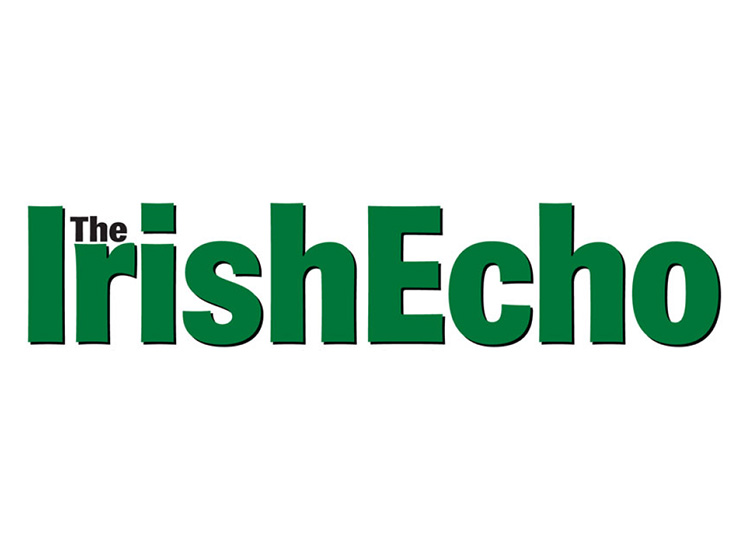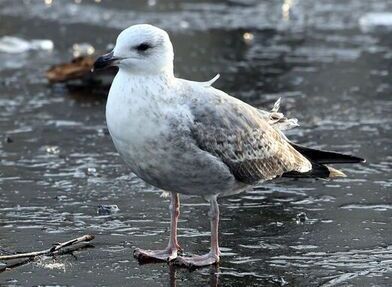I'm in a hotel in Gweedore. Donegal have just come from behind to take a tense game from Kildare.
The pints are flowing but the jet lag has finally nailed me. So I beat it upstairs before I'm dragged out to the celebration in Leo's Tavern. Enya's family owns the joint, you never know who might be there, and it's a long road to Wexford tomorrow!
Too dazed to read I switch on the television. Maybe I'll get some word on how the Shakespearian drama is unfolding in D.C. Will President Hamlet have stiffened his resolve? Will Lord Boehner and Earl McConnell realize that tea parties can be poisonous affairs?
But, as ever, television is a vast wasteland with a dizzying array of talking heads stating the banal obvious in the few moments their corporate masters are not hawking deodorants, gas-guzzlers and Viagra.
"A vast wasteland." Now where did that phrase come from?
Oh, from a little speech given fifty years ago by Newton M. Minow, then chairman of the FCC, when he invited America to "sit down in front of your own television set... keep your eyes glued until the station signs off. I can assure you that what you will observe is a vast wasteland."
At the time, the only choices were the three networks. Yet the speech caused uproar because Minow was suggesting that since CBS, NBC and ABC had been given free and exclusive licenses to use the airwaves they should provide bona fide "public service" programming.
Minow's reward? Well, Gilligan's Island named a sinking ship, S.S. Minnow, in his honor; but he also received encouragement from the attorney general, Robert Kennedy.
Both men shared the forlorn notion that television could be harnessed to raise public consciousness on national issues, and not merely be a cash cow for three lucky corporations.
The networks kept their powder dry; the feisty Kennedy was already tackling the mob, Jimmy Hoffa and southern racists; the center might not hold.
How right they were. Jack Kennedy was assassinated in Dallas. Lyndon Johnson's family had extensive radio interests, giving the new president little desire to interfere with television's commercial promise.
Minow eventually got the boot and the wasteland expanded in ways neither he, nor Kennedy, could have imagined.
Before his departure, however, he helped launch a string of non-profit educational television stations currently known as PBS. Unfortunately, even these timid oases of sanity are now under attack for the heinous crime of balanced news reporting.
"Television deals too much with covering controversy, crimes, fires, and not enough with the country's great issues. Our presidential campaigns are obsessed with the trivial," Minow trumpeted.
Jeez, he should check out today's 24/7 cable coverage! Poor guy didn't even have to deal with the current mania for celebrity, reality shows, or the unmasking of sexual foible.
But it's the sheer fakery of TV that offends more than anything. I still cringe at the sight of pepped-up talk show audiences, knowing that they've been goaded into action by some gofer moments before the camera rolls; while how sad to watch the salty and hilarious off-camera Jay Leno morph into a puppet mouthing inanities that you wouldn't tolerate from your neighborhood drunk.
As for content? I was once chided by Bill Maher on "Politically Incorrect" for having the temerity to suggest that congressmen couldn't be elected unless they were millionaires (he since appears to have seen the light).
No, my job as a "guest liberal" was to attack Maureen Reagan by ripping into the reputation of her Alzheimer's suffering father. Controversy and boorishness, as ever, is more important than fact on the boob tube.
Could TV have fulfilled its indubitable promise? Could Minow and Bobby have turned things around? We'll never know as one nut with a gun rendered such speculation academic.
Ah, to hell with jet lag and the rocky road to Wexford! I'm going out to Leo's. Maybe Enya will be there. I'll wear yellow shades and tell her I'm Bono, we can hold hands, sip pints and watch TG4 together.








